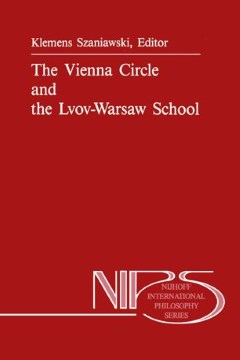Repository | Book | Chapter

(1989) The Vienna circle and the Lvov-Warsaw school, Dordrecht, Springer.
Moral philosophy was not a major topic in the work of the Vienna Circle and the Lvov-Warsaw School. The desire to do philosophy in a rigorous way was carried out in both schools through research in logic, epistemology and philosophy of language. Moral philosophy did not lend itself easily to similiar amendments. Apparently it offered only two options. It could either be totally dismissed as a metaphysical and speculative theory or it had to be transformed into an empirical discipline by resting moral norms and values on observable facts. No philosopher of renown in Poland chose the first possibility. In Vienna, Rudolf Carnap openly declared that ethical statements were meaningless, and consequently ethical theory was to be summarily rejected as a repository of fallacious statements. However, he modified this opinion in later years, so there is no need to dwell on his early views. Similarly I will have to forego a discussion of the attempts to perceive ethical problems through the medium of language, which gave birth to emotivism and metaethics. For one thing, these theories were not, strictly speaking, ethical theories, for another, they were developed in England and the US, rather independently of what was being done at the same time in the Vienna Circle and the Lvov-Warsaw School.
Publication details
DOI: 10.1007/978-94-009-2829-9_10
Full citation:
Hołówka, J. (1989)., The project to create an empirical ethical theory, in K. Szaniawski (ed.), The Vienna circle and the Lvov-Warsaw school, Dordrecht, Springer, pp. 191-201.
This document is unfortunately not available for download at the moment.



